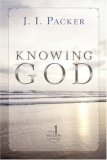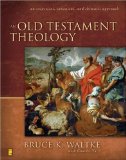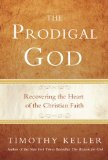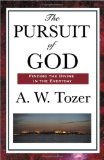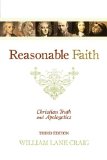Thanks to Adrianna of IVP for a review copy of this book.
 Michael Bird is a rising young voice amongst New Testament scholars. An Australian by birth who now teaches in Scotland, he has made himself notable for good scholarship, offering mediating positions between debating parties and blogging (over at Euangelion, which we have linked to the right). In some senses, he’s rare in the world of Bible scholars, particularly in two ways: he avoids idiosyncrasies (i.e., he doesn’t seem to have an axe to grind) and he’s fairly funny. Both of these points come up in this book.
Michael Bird is a rising young voice amongst New Testament scholars. An Australian by birth who now teaches in Scotland, he has made himself notable for good scholarship, offering mediating positions between debating parties and blogging (over at Euangelion, which we have linked to the right). In some senses, he’s rare in the world of Bible scholars, particularly in two ways: he avoids idiosyncrasies (i.e., he doesn’t seem to have an axe to grind) and he’s fairly funny. Both of these points come up in this book.
Introducing Paul is an excellent and compact guide to Paul and his letters, or as the subtitle states, “The Man, His Mission and His Message.” The back cover of the book purports to aim for “beginning students and laypeople,” an audience Bird seems particularly suited for. His discussion is in depth enough to get past the surface level and to the heart of the issues, but not bogged down in details to the point of obscuring the message of Paul.
Bird introduces Paul using five dominant images: persecutor, missionary, theologian, pastor and martyr. One comes away with the understanding that Paul was not merely a dogmatic theologian looking to wield his authority, but rather a church planter and pastor who eagerly sought the health of his churches. His theological work was intended to serve and strengthen the church.
There are a number of good points to highlight from this book. Included is a chapter on the gospel and its terminology, as well as Greco-Roman uses of those same terms to give the reader an idea of how words like “gospel” or “savior” would have been understood in Paul’s day. This point has been made by many scholars, of course, but Bird actually puts quotations from ancient writings to make his point. Bird gives a brief overview of the “stories behind the story,” dealing with Abraham, the church, Israel, etc. I could see bits and pieces of various scholars throughout this chapter, but it was presented in a fresh way that made it enjoyable to learn all over again.
On the debate over justification (most popularly in the Piper vs. Wright showdown), Bird notes that “imputation” is never explicitly stated in Paul but it is an undeniable extension of what is clearly taught, namely “incorporated righteousness” (to use Bird’s term). Bird also allows a greater place for the resurrection of Jesus than many evangelicals, who often relegate it to “proof of what God did on the cross” (p166). The “wretched man” of Romans 7 is not Paul as a Christian, but rather written from the point of view of a “pre-Christian.” There were even moments of personal conviction in this book, especially in his chapter on “gospelizing.”
There are, of course, areas where I was not in full agreement, though they were few and relatively unimportant. I noticed some grammatical issues, such as a relative clause that stands alone as a sentence. Which is poor English. Paul wasn’t referring to offending people when he warns against causing someone to stumble in 1 Corinthians 8 (p152). Paul is actually talking about leading a brother or sister to act against their conscience, and therefore sin.
While I greatly appreciated the emphasis on the Greco-Roman background of certain terms in Paul, as noted above, I couldn’t help but wonder if the Old Testament could have received more space. After all, didn’t Isaiah have something to say about the “good news” of salvation? Old Testament references are offered in the helpful chart on pages 87-88, but the Greco-Roman parallels receive paragraphs instead.
A subsection specifically designated for the Holy Spirit would have been helpful, too. It’s not that I disagreed with what Bird had to say about the Holy Spirit, but the references were scattered throughout the book. Since there is no subject index, one couldn’t simply look there to find the references; nor is there anything in the bibliography that stood out as a book dedicated to the subject (Gordon Fee, anyone?). But the main reason I point this out is because of the book’s intended audience. Sure, scholars know where to look in this book to find out what Bird thinks of Paul’s view of the Holy Spirit. They’ve read widely enough on the subject that they know the types of places that scholars will place the discussion. But the audience of this book is “beginning students and laypeople.” These are the kinds of people who will want to find a quicker route to what they’re looking for, but will come up disappointed. It’s a shame, too, because Bird has a strong grasp of Paul’s view of the Spirit, who is active in more ways than many Christians think.
But those points should not detract from the high regard I have for this book. Bird has a done a remarkable job of making Paul make sense. I can’t think of anyone who wouldn’t do well to read this book, which hits its target audience very well. I also think that anyone preaching or teaching on Paul’s letters ought to read this book to help them place each letter in the context of Paul’s life and ministry.
I couldn’t recommend this book highly enough. Bird has a wonderful gift for communicating difficult concepts in an enjoyable -at times witty- manner, but still serious enough given the subject matter. Bird, like Paul himself, is not content in the ivory tower, but seems to have the goal of helping build the church. If we can hear Paul’s message in our time, the church can only more faithfully reflect the image of Christ. Michael Bird helps us hear Paul’s message.
Read Full Post »
 Michael Bird is a rising young voice amongst New Testament scholars. An Australian by birth who now teaches in Scotland, he has made himself notable for good scholarship, offering mediating positions between debating parties and blogging (over at
Michael Bird is a rising young voice amongst New Testament scholars. An Australian by birth who now teaches in Scotland, he has made himself notable for good scholarship, offering mediating positions between debating parties and blogging (over at  you add in things like the sacrificial system and the Law of Moses, which are no longer binding in the new covenant, some Christians wonder why it’s worth the time to figure all this out.
you add in things like the sacrificial system and the Law of Moses, which are no longer binding in the new covenant, some Christians wonder why it’s worth the time to figure all this out. 1.
1.  2.
2.  3.
3.  4.
4. 

